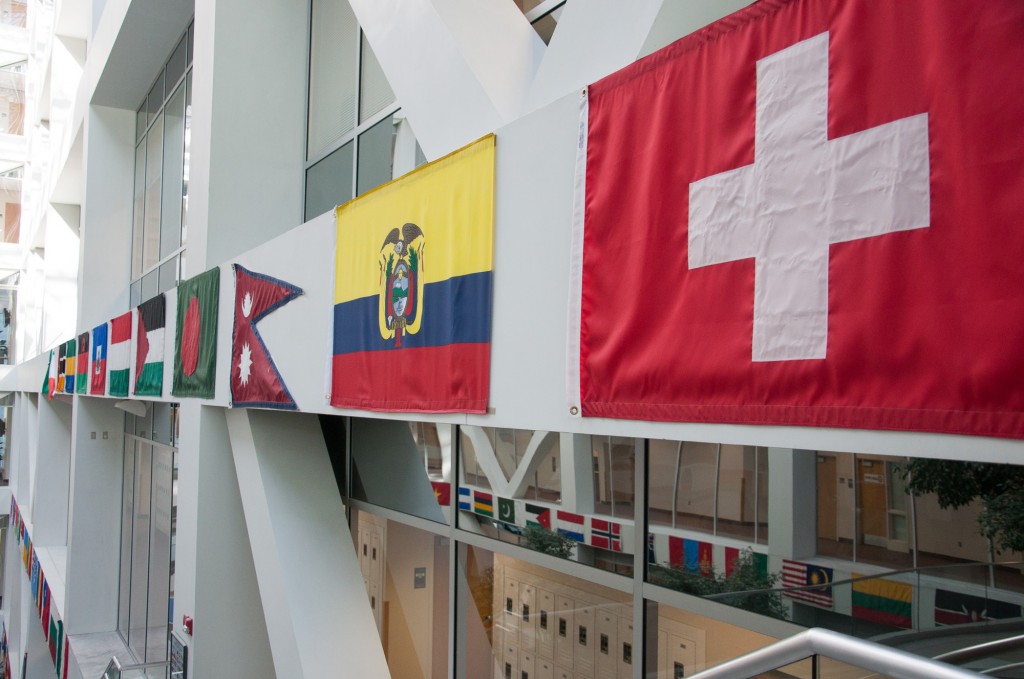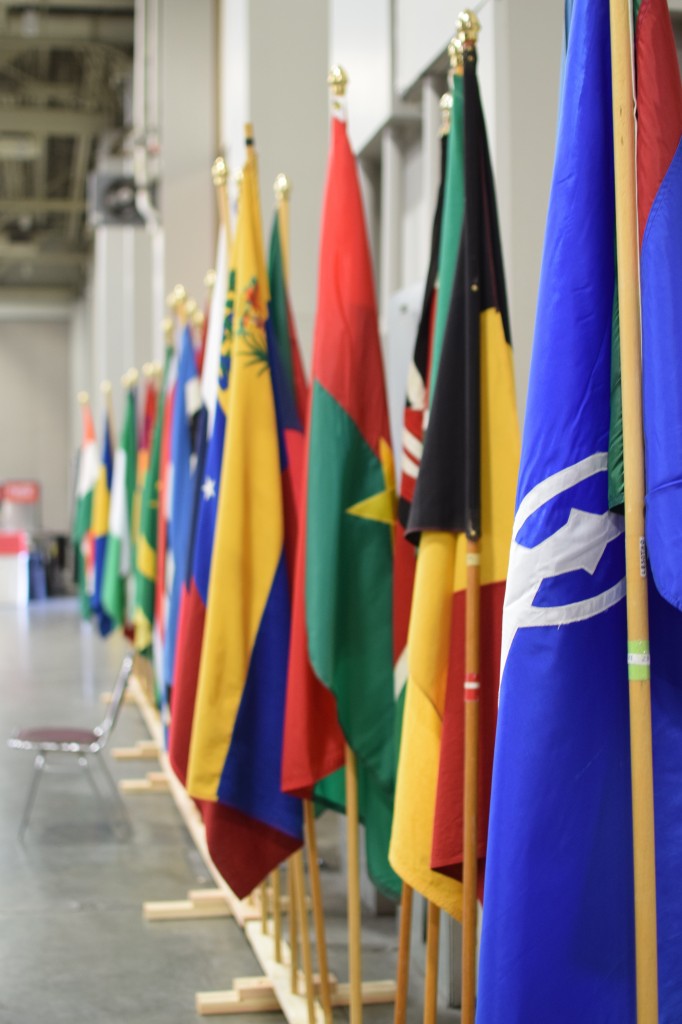Nada Elmasry, a graduate student from Cairo, Egypt, always wanted to enroll in business school. After learning about BYU’s top-ranked business program and great spiritual environment, Elmasry decided she would travel to BYU to further her education.
While she was excited to go to BYU, she did not anticipate some of the social and religious challenges she would face in the United States.
“As a practicing Muslim, one of the biggest challenges came from religious adjustments,” Elmasry said. “I pray five times a day, but here there aren’t places that you can pray in public settings.”
Food also proved to be difficult, as Muslims cannot eat pork. Elmasry said that stores in Egypt rarely, if ever, sell pork products. But the prevalence of pork products in America has made her more vigilant when shopping.

She said that overall, life in the United States has been easier because of BYU’s circumstances.
“Coming here, I heard a lot of issues from girls who were also Muslim that had difficulties transitioning because people didn’t understand them,” Elmasry said. “I’m lucky to be here because I feel that people respect me even though I’m a different religion.”
The transition to a college lifestyle is tricky for every student attending BYU. Moving to get a higher education may lead to homesickness, financial struggles and difficulty in managing time.
Adjustment challenges vary among different people, but the nearly 2,000 international students who currently attend BYU not only have to adjust to life in university, but also to life in the United States.
Sam Brown, director of International Student and Scholar Services, said the department has tried different ways to help students transition, including orientation meetings at the beginning of the semester that are adapted for different cultures.
“This class covers topics of the academic, social and religious cultures here at BYU,” Brown said.
In addition to special classes, the International Student and Scholar Services Office assigns an adviser to every international student. These advisers are intended to show support and provide counsel if a student has any questions.
For students who haven’t learned English, the English Language Center is where their BYU experience begins. Sandy Hatchett, the student life adviser for the center, tries to help students as they adjust to the United States’ culture.
“My position as the student life adviser is unique among other second language schools,” Hatchett said. “Most other schools may have a person who helps out students for some of their work time, but everything I do is answer questions that students have.”

Her job is to connect students to resources they may need. Some of these issues may relate to finances, United States culture or technology, like the online class-management system Canvas. Hatchett encourages BYU students to reach out to international students they may know.
“Some people come from cultures that are open and warm, but others may feel a bit standoffish,” Hatchett said. “Students are often put in an apartment with three other people who are likely not culturally the same as them. Add homesickness to that and it is a serious challenge.”
Ben McMurry, the English Language Center’s program coordinator, also said that the staff strives to help students transition smoothly. While McMurry said they are very successful, he thinks that opportunities to learn about what the center does should be more common on campus.
“More people in the BYU community should understand more about what we do here,” McMurry said. “People are not aware of the unique circumstances that our program has, so the more BYU students know, the better they can help our students.”
The English Learning Center has a student leadership council, which organizes three different events throughout each semester. These are meant to help students practice their English and get involved in what the United States’ culture can offer. The student leadership council and staff in the language center strive to help their students.
“We love our students,” McMurry said. “We want them to be successful and have opportunities. We are lucky to have the structure that we have at the Language Center and to have teachers that care about their students.”
Dio Marino, a sophomore from Malaysia, said there are cultural and educational differences that he has had to work through during his time at BYU.
“Everyone has a strong political view about things here,” Marino said. “People from Asian countries aren’t very open about their opinions and are very reserved. I usually just keep to myself with those kinds of issues — that’s been a big adjustment.”
Because the education system in Malaysia is exclusively exam-based, Marino said the hardest part of his adjustment was learning how U.S. schools work. He had never needed to write papers or work on assignments; he only had to study.
“I wish I would have used more of their resources in the beginning,” Marino said. “There are classes that can help students adjust their studies, but I didn’t do it because I wasn’t exposed to it until after the semester had started.”
Despite not knowing about the class early on, Marino said that BYU faculty members are doing a great job offering resources to international students. At this point, the only change Marino would like to see is among the student body.
“I feel like new students feel that they have to be the same as everybody else here at BYU,” Marino said. “If this cultural bubble didn’t exist, I think that it would be easier for international students to fit in.”




